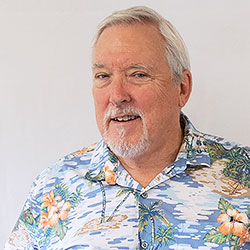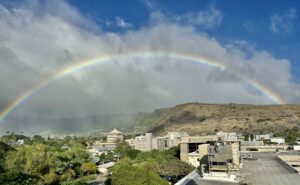James Roumasset
UHERO Research Fellow and Professor Emeritus of EconomicsEducation
Ph.D., Economics, University of Wisconsin, Madison, 1973
M.A., Economics, University of Hawaii, 1969
B.A., Economics, University of California, Berkeley, 1965
Research Interests
Environmental & resource economics, water and watershed management, new institutional economics, development microeconomics, and sustainable developmentDr. Roumasset’s primary areas of research stem an NSF grant on energy substitution and sustainable development, the ERS/USDA PREISM program and a number of USGS grants on the sustainable development and conservation of water resources. He has previously held positions at UC Davis, the University of the Philippines, ANU, Yale, the University of Maryland, the International Rice Research Institute, and the World Bank, where he worked as a long-term consultant on irrigation economics. He has served on the Board of Directors of the Western Economic Association International and the editorial boards of the American Journal of Agricultural Economics, Contemporary Economic Policy, Asian Journal of Agriculture and Development, Asian Journal of Agricultural Economics, and SE Asian Journal of Agricultural Economics. His publications and extramural grants during the last 10 years have focused on developing new methods for policy analysis for resource and environmental management problems in Hawaii and the Asia-Pacific Region and promoting new connections both between and within disciplines via sustainability science. He has also published widely on agricultural development, transaction cost economics, risk and decision-making, and the nature, causes and consequences of public policy.



